
Sliding quietly into bed beside his wife, who was pregnant with their first child, ‘traumatised’ PC Martin Richards kept to himself the horror of that night – finding an on-duty officer shot dead in the street on a dark December night in 1973.
Some 50 years on since victim PC Dennis Smith, aged 44. was gunned down by a callous killer in what became known as the Torquay Casino Murders, now-retired Martin is choked with emotion when he remembers that tragic night.
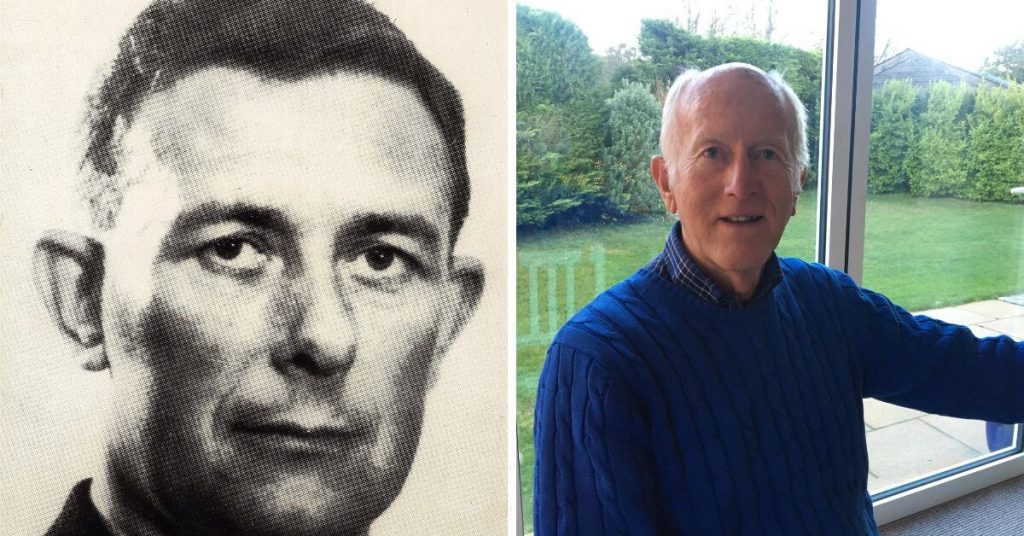
It’s likely Martin cheated death himself on December 21, 1973; he arrived at the Rosehill Road cul-de-sac seconds after married Dennis Smith had been gunned down by angry and drunk Martin Fenton, who was out to seek revenge.
When PC Smith pursued and stopped Fenton for driving erratically – on his way to confront casino owner John Tsigarides about a gambling debt – he could not have known he would fall victim to a gunman.
After shooting PC Smith multiple times, Fenton fled the scene in the dead officer’s patrol car, to continue his killing spree.
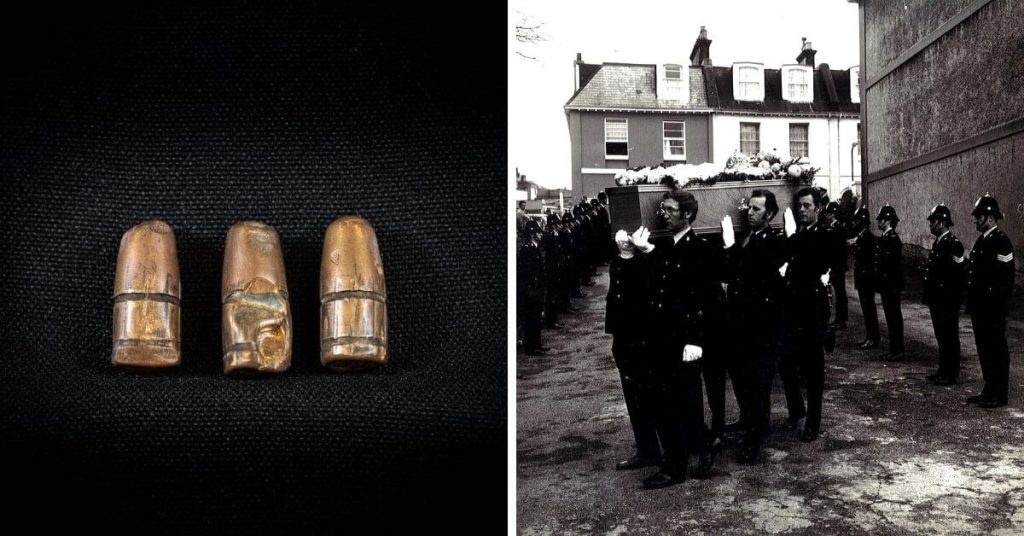
Martin, who had been on duty in the patrol car with PC Smith the night previous, said: “I always think it I could have been shot dead myself if I’d been there.
“I couldn’t have been there much earlier but if I got there seconds earlier, I imagine I might well have been shot myself because he was driving off in a police car and he was already under the influence of alcohol and was intent of shooting Tsigarides.
“Another policeman probably wouldn’t have made much difference to him, that’s a thought that’s often with me.”
After Fenton fled, Martin was immediately sent to one of the homes of Tsigarides because it was thought the disgruntled gunman would look for the casino owner there.
“We were there during the night with no protection, other than truncheons, trying to find the offender. But in the meantime, of course, he had gone to the casino and was subsequently arrested in East Devon,” said Martin.
“But before that we were actually trying to find him with very little support, in terms of firearms or protective clothing.
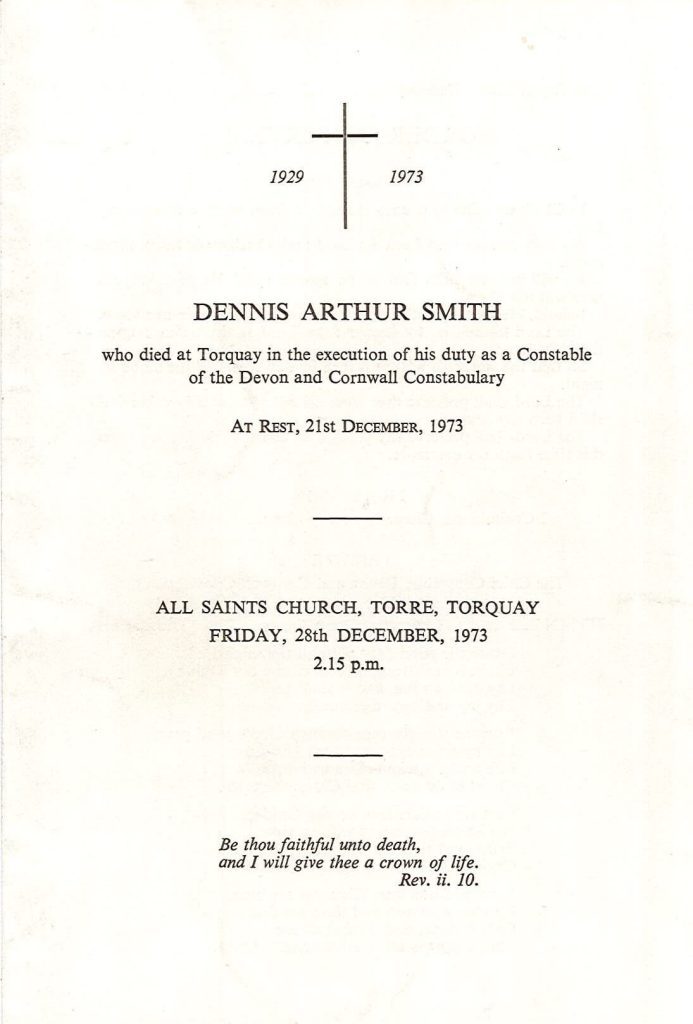
With no counselling available to him at that time, Martin’s family remembers he was soon back on duty at work.
“You were just expected to go back to work and just carry on the best as you could and that’s exactly what happened.”
Martin, who had been in the job eight years at the time, said: “In subsequent days there was no opportunity for any counselling or anything of that nature, but I think we just used to deal with these things amongst ourselves.
“But I do get very emotional when I am thinking about it, or talking about it and I always will.”
When ‘traumatised’ Martin returned home late to his wife, he got into bed without a word. She remembers ‘he couldn’t say anything at all’.
He told her the next day about the shooting, said he ‘didn’t want to speak about it’ and ‘for some while’ stayed silent about what he saw.
And for 48 years, Martin stayed away from the spot where PC Smith was gunned down, returning for the first time in December 2021, for a ceremony to unveil a memorial to the fallen officer.
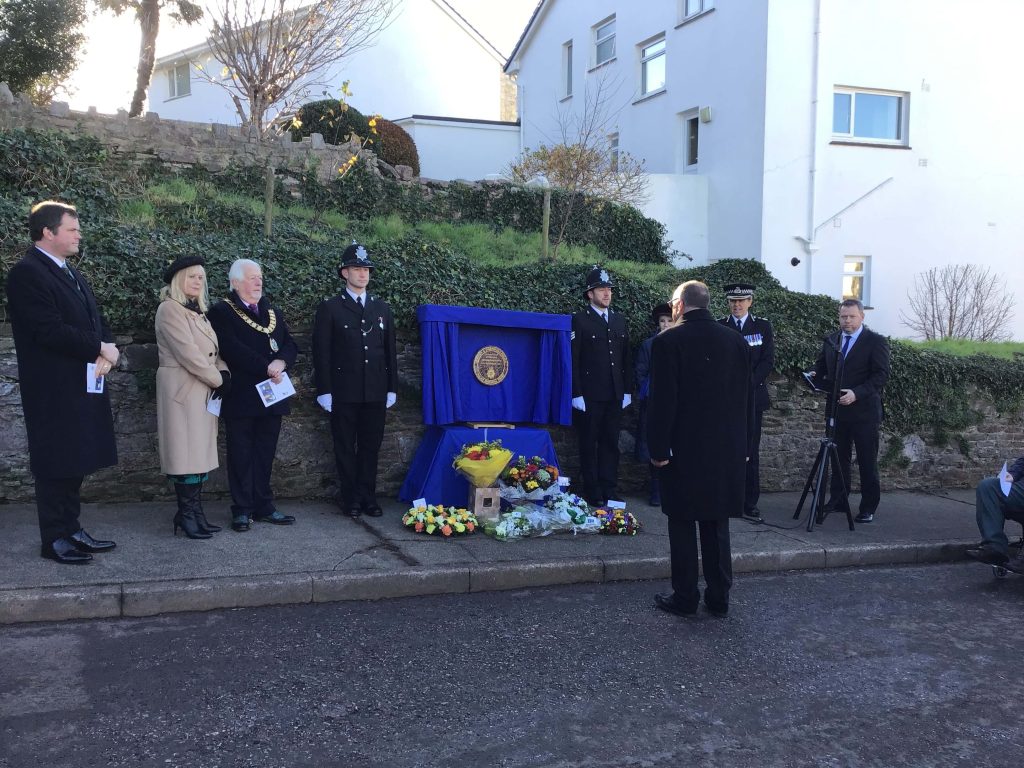
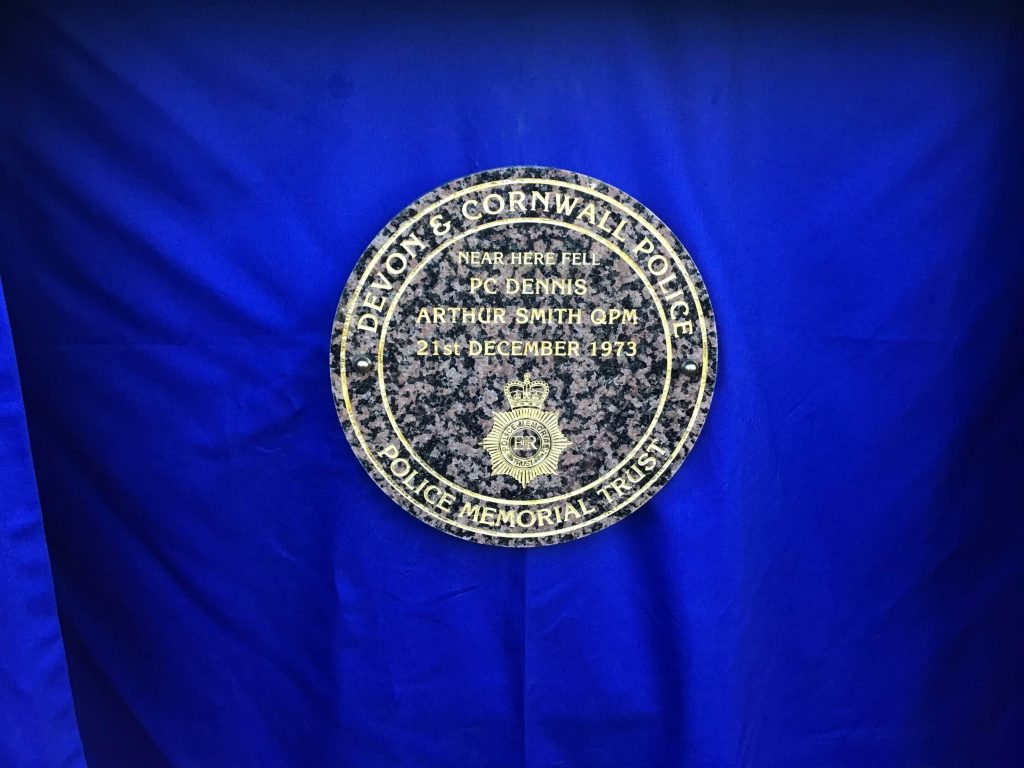
“It was much the same as it was on the night, but I tell you, it really shook me,” said a choked Martin.
It was reported that Fenton killed PC Smith, shooting at point-blank range, moments after the officer radioed back to control that he was getting out of his patrol car to confront the dangerous driver.
He had been cornered in the cul-de-sac after zig-zagging his Ford Grenada all over the road.
Hearing PC Smith on the radio say he was following what he thought was a drunk driver who was refusing to stop, Martin had turned his incident car in the direction described by his colleague, in a bid to help.
“I was on uniform patrol in Torquay on night duty and I was driving what was known as the incident car, which covered the division, and I was in Castle Circus, which is in the centre of Torquay town, and I heard a radio transmission from PC Dennis Smith, which indicated that he was following what he thought was a drunk driver.
“I could hear what he was saying, and this driver was obviously not going to stop,” Martin said, still overcome by the memory.
“I could hear he was indicating the direction he was travelling in, and I thought that he might need some help.
“I started driving in the direction that he was heading in and then we heard another message to say that he had stopped his car; the car had come to a stop in a dead end. And I was not very far away at that time.”
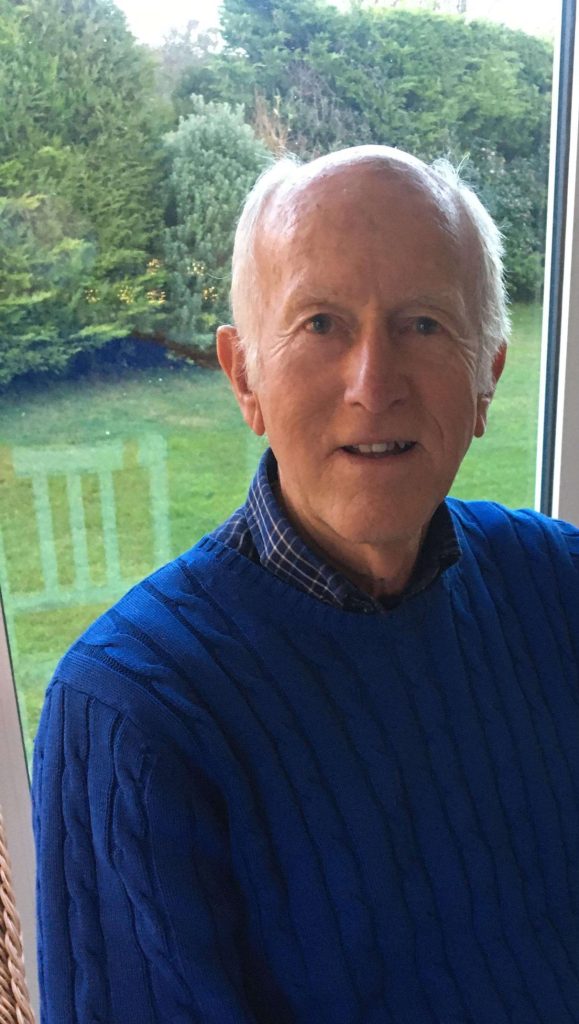
But when Martin pulled the incident car into the quiet cul-de-sac, his headlights picked out the lifeless body of PC Smith, lying in the road, his panda car missing and Fenton’s abandoned Ford Grenada nearby.
The brave officer was killed during a ‘struggle’ – his last words ‘Oh God…oh God,’ were heard over the police radio as Fenton fled the scene in the dying officer’s panda car.
“When I arrived at the location that he was talking about I found Dennis lying in the road, in complete darkness, with a Ford Granada in front of him which was at the end of a cul-de-sac so the Granada couldn’t go any further,” remembers an emotional Martin.
“Dennis’s panda, the patrol car, was missing and I thought at first that Dennis had fallen off a low wall nearby and had perhaps knocked himself out.
“I tried to bring him around, but I quickly realised he was dead. It was not immediately apparent that he’d been shot because we were in total darkness and in a very isolated spot. But it transpired he’d been shot once in the chest and then twice more while he was on the ground.
“I then realised that the offender had driven off in the police car, although I arrived literally within minutes, I didn’t see the car leaving.
“Eventually an ambulance arrived, and we then found that he’d been shot three times.”
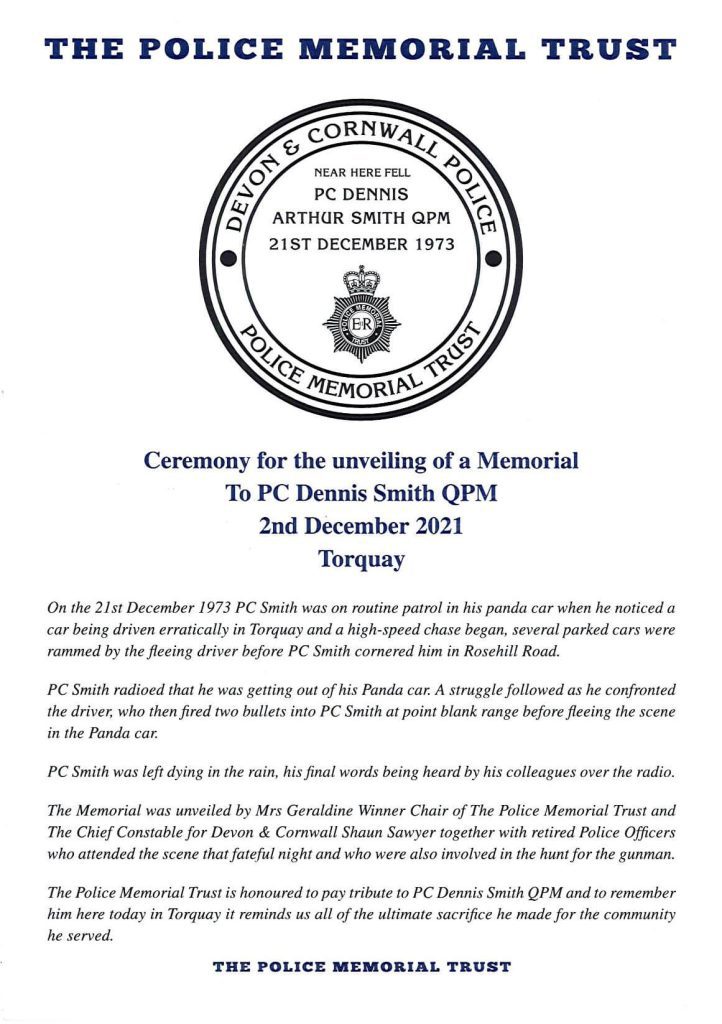
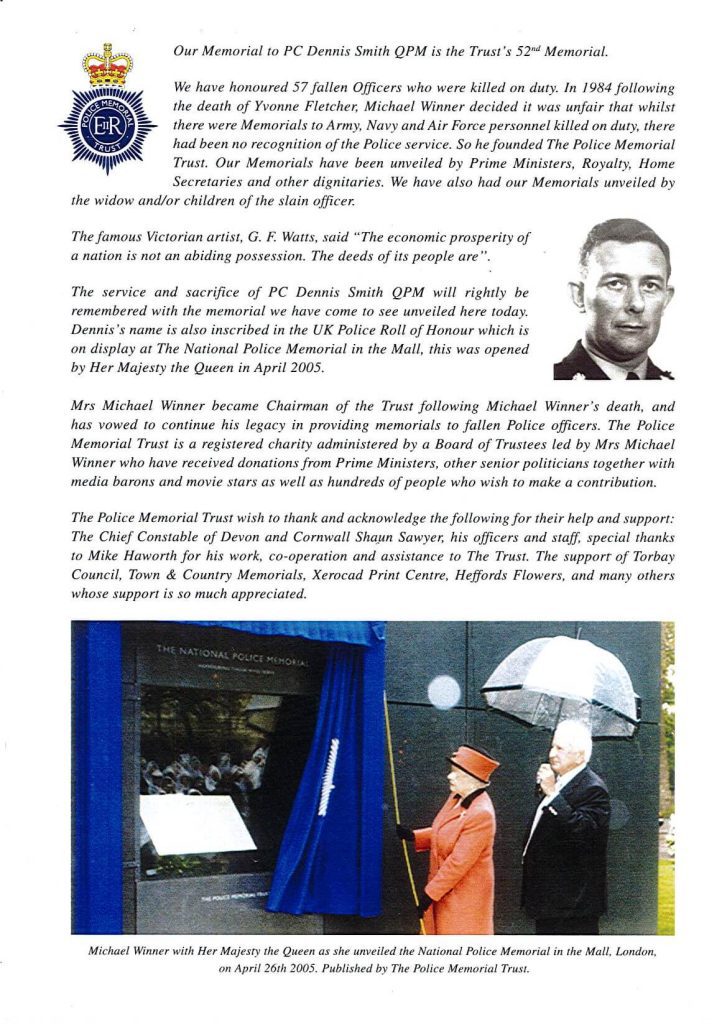
Some five decades on, Martin described the blow of pulling into the dark and isolated cul-de-sac, finding PC Smith.
“To see a colleague in uniform laying in the road, like Dennis was, in complete darkness in an isolated location was shocking. To see him in the headlights…”
“The shock of seeing a guy in uniform. In that position. You don’t automatically think ‘oh he’s been shot’. You try to think of some other explanation.
“There just happened to be a low wall in that area and that was just the first instinct – why would he be lying unconscious like that?
“I don’t know when we found he had been shot. But I can remember I was shaking like a leaf for ages.
“And in the Granada that had been abandoned, we found another 200 rounds of ammunition, so if he had taken that with him to the casino, he may well have shot more people.”
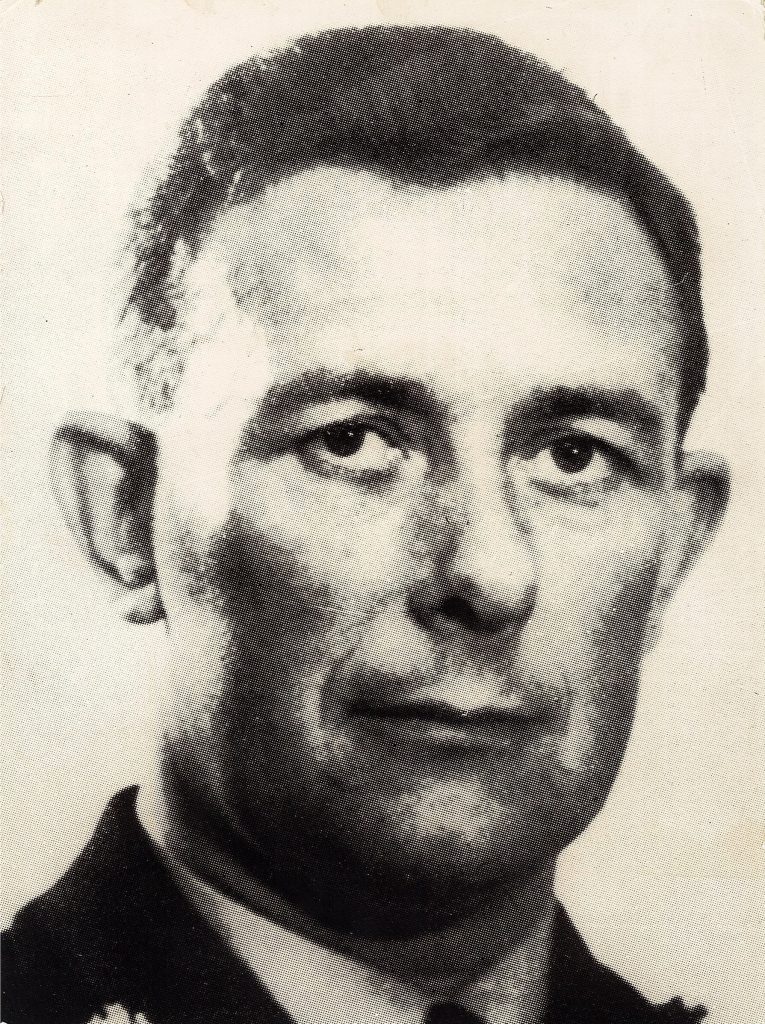
Martin later learned Fenton drove the police car to a hotel he owned in Torquay. He dumped the stolen vehicle for his Ford Escort work van, headed for the Carlton Casino, in Torwood Street, Torquay.
His focus was on revenge, determined to settle a grudge against the casino owner over gambling debts and unpaid bills.
Martin said: “The reason that he had gone to the casino was that he had had a business disagreement with the owner of the casino, John Tsigarides.
“And that is why he was out driving in Torquay at night. His intention was to shoot John Tsigarides, which he failed to do, and Dennis was unfortunate to interrupt his travels.
“He was under the influence of drink, as Dennis thought, and this was presumably to give him some sort of courage to shoot Tsigarides.”
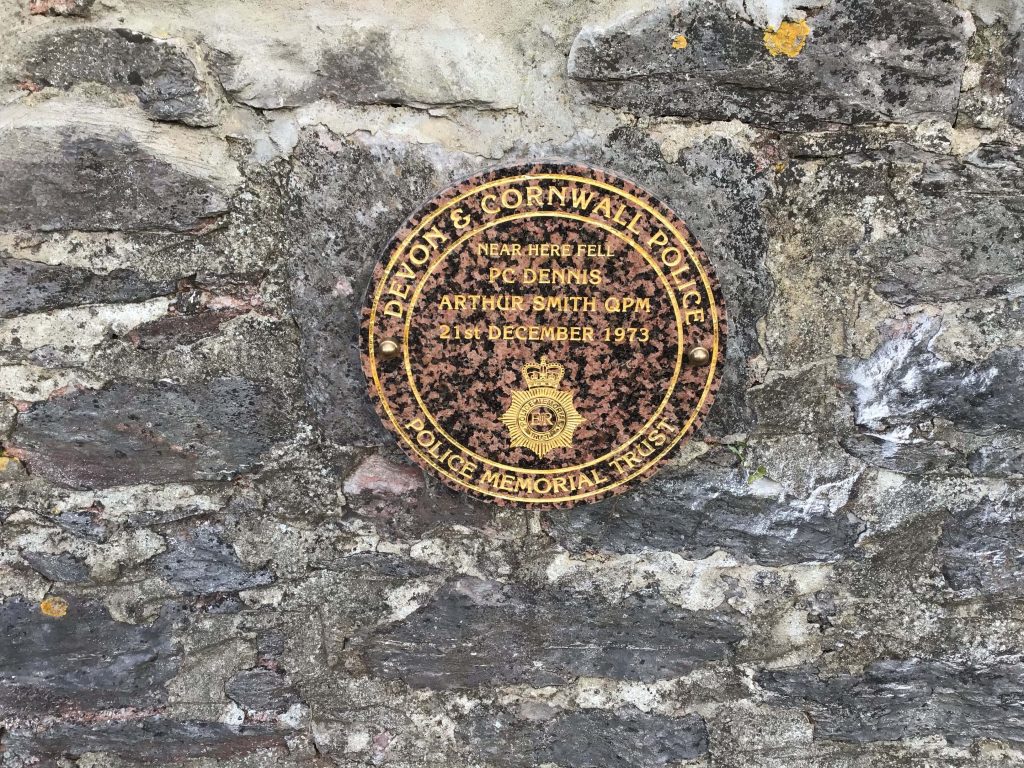
No one thought it odd when Fenton was spotted walking into the casino with two guns tucked into his waistband.
With just four days to go before Christmas, the nearby Imperial Hotel was holding its annual Holly Ball. The party mood was high, and he was mistaken for ‘some sort of clown’ wearing fancy dress.
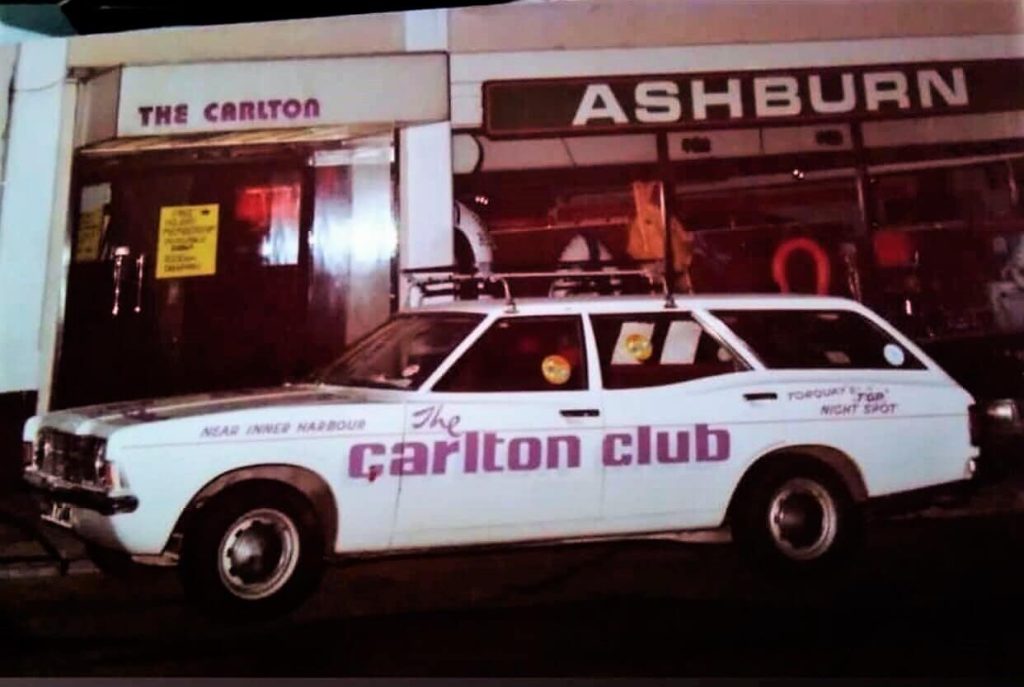
Eyewitness from that time said Fenton found his target, pulled out both guns, but before he could shoot Mr Tsigarides, the shocked casino owner ran for his life, diving over a roulette table, hiding under another.
Mr Tsigarides later told the Herald Express that Fenton started firing bullets, saying: “I think he was after me. He had two guns. I did not try talking to him. I went straight over the table and the shooting began.”
Shooting at random casino customers, as they scrambled to hide, Fenton’s killing spree claimed more victims.
Reports show five people were shot; those murdered were named as gaming manager and married dad-of-two Leandros ‘Leon’ Papadakis, and Austin Webb, who was killed in his chair as he played roulette.
Courageous croupière Ann Andre, 29, from Paignton died in hospital after she walked up to Fenton and tried to soothe the gunman, quietly imploring him to ‘calm down’.
As he turned the gun on her she cried ‘please don’t shoot me’ but he ignored her and she took the last of Fenton’s bullets; he shot her in the stomach, and again in the neck as she lay mortally wounded, groaning on the floor.
Terrified customers fled the casino, bar, and lounge, to hide and barricade themselves in the toilets.
Fenton ran outside to his van, sparking a two-hour police manhunt for the killer.
Martin said: “He then drove off in a van still pulling the trigger of his handgun and was eventually arrested by uniform patrol in Newton Poppleford, in East Devon.”
Torquay was quicky cordoned off and roadblocks were set up all over Devon in the hunt for Fenton.
It was eagled-eyed PC Tony Woodland and PC David Morey, in a patrol car, who spotted Fenton’s van on the Exeter Bypass.
Setting off at speed after the gunman, Fenton repeatedly crashed into the patrol car as the officers gave chase in a bid to stop him.
The police pursuit followed Fenton on to the Sidmouth Road, where PC Christopher Tree, in a patrol car, headed off the killer’s van at Newton Poppleford, in East Devon.
Some 40 miles from the casino shootings, Fenton’s van was rammed by police cars, and forced onto the driveway of a house.
A trio of intrepid officers – now aware Fenton had killed their colleague – wrenched open the van door to find the gunman stabbed, with a knife deep in his chest, as he unsuccessfully tried to kill himself.
He survived to face trial and was sentenced to life behind bars, found guilty of four murders.
It was reported Fenton died in prison in 1996. He served 22 years of his life sentence.
A newspaper cutting, dated 1975, features a photograph of PC Smith’s widow, Margaret Smith, with the Queen’s Police Medal for gallantry, posthumously awarded at a Buckingham Palace Investiture.
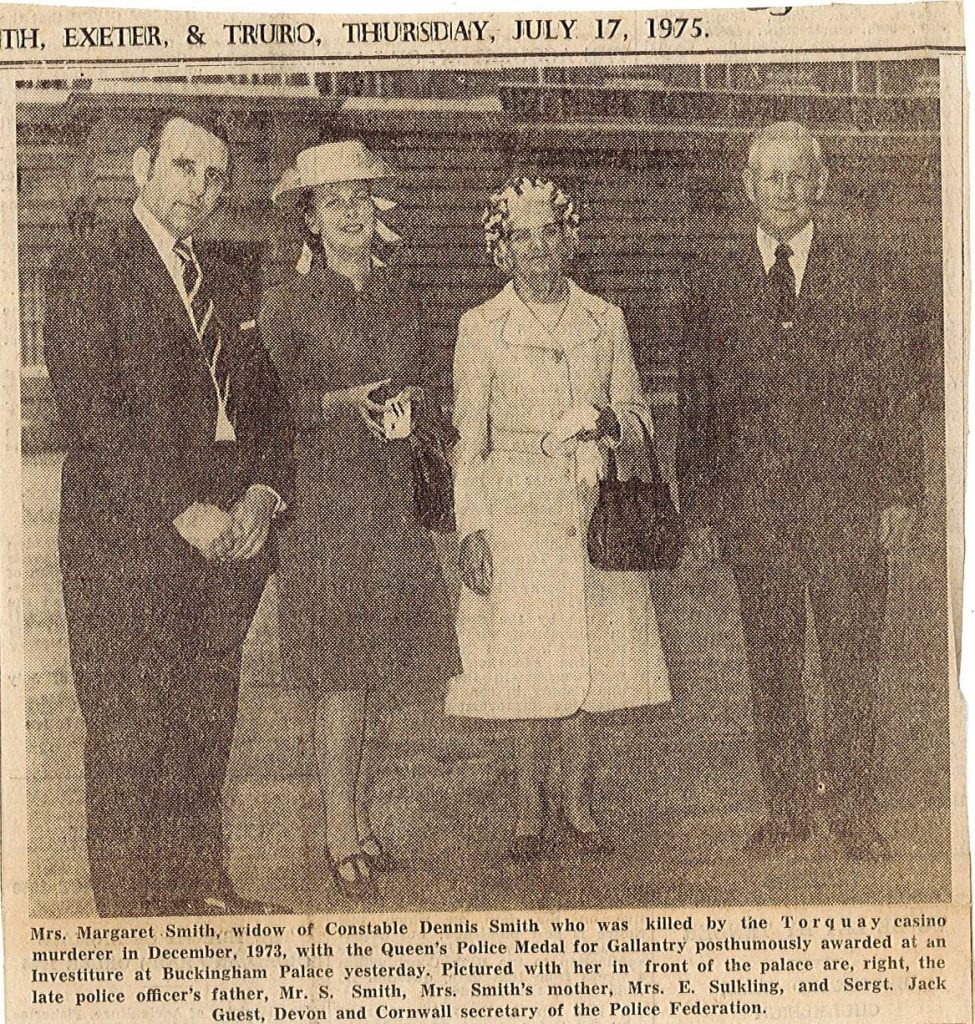
A black and white photograph of officers carrying the coffin of PC Dennis Arthur Smith at his funeral is held in the Museum of Policing in Devon & Cornwall archive, along with his official force portrait photo.
An order of service, preserved in the Museum archive, shows the 2021 Police Memorial Trust ceremony to unveil a plaque to PC Smith was attended by Chief Constable Shaun Sawyer, Police and Crime Commissioner, Alison Hernandez, and Torquay Mayor, Terry Manning.
Spent bullets fired by Fenton at the casino are held in the Museum’s collection.
• A transcript and recording of Martin Richards’s interview is held in the archive at the Museum of Policing in Devon & Cornwall


